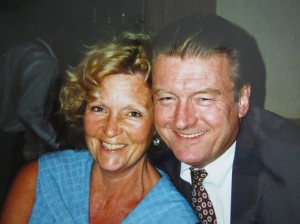As of today, I’ve been a widow for 2½ years, though it feels like it’s been much longer than that, maybe a decade longer. Most widows agree. That might be because of all the tears cried or maybe just the many radical life changes. It could simply be the fatiguing nature of deep grief. Whatever the reason for feeling like a long-term widow, I can still identify quite a few positives coming out of those same 2½ years.
Widowhood was God’s choice for me in exactly the way and time it came. I can view it as a crisis sent from him or the result of living in a fallen world. Or I can take a completely different approach and see it as the reason I expanded my dependency on the Lord to a depth I would never have known without becoming a widow.
Women with husbands have this same opportunity to lean hard on God day to day, hour to hour, but taking advantage of it isn’t the driving force it is for a widow. When widowhood hits, extreme neediness forces a quest to find a new system of support and guidance.
Some women hold back, mad at God for taking their men. Others try to go on “as always,” but of course that doesn’t work. The Lord patiently stands at-the-ready, waiting with open arms and unlimited resources to step into the increased role we need from him.
If we don’t pull in close to him right away, it’s comforting to know he’ll wait until we’re ready. His offer of kindness, strength, and provision is open-ended, for always. The more desperate we become, the greater his rescue.
I’ll always miss Nate. We met when we were both 21, having officially left childhood behind, and were eager to start adulthood together. My entire adult life was spent in partnership with him, and although we had the usual marital disagreements, I’ll never forget the happiness we shared.
Since widowhood, with God’s steady encouragement and provision, the painful parts of our separation are mostly behind me. I can even think through the details of Nate’s cancer, his last hours, and his funeral without crying, which is exactly what other widows told me would eventually happen.
Although I never would have requested widowhood, as I pass the 2½ year mark, my memories are sweet, and the future, though undefined, is not a threat. I’ve found God’s ears open to my cries and his promises spot-on. And I’m confident that what’s been true of him during these past few years will continue to be true into the distant future.
And part of that future will always be to tell the story of how good he’s been to me.
“The widow who is really in need… puts her hope in God and continues night and day to pray and to ask God for help.” (1 Timothy 5:5)



